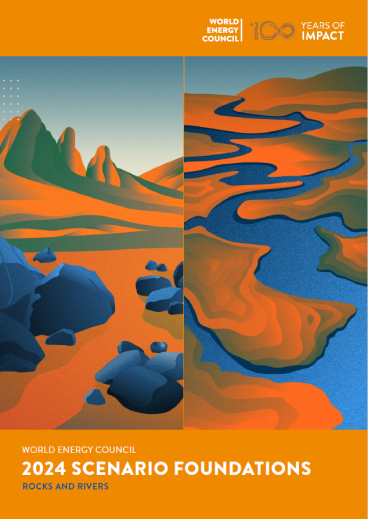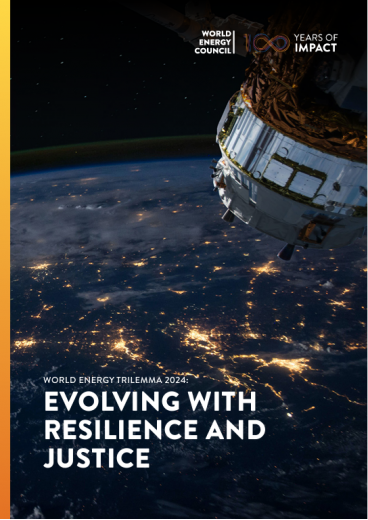Our Secretary General and CEO Dr Angela Wilkinson presented the opening plenary keynote at the 3rd Belt & Road Energy Ministerial Initiative in Qingdao, China.
Below are Dr Wilkinson's remarks as originally prepared for delivery.
.jpg)
Excellencies, Ladies and Gentlemen
Ni Hao!
Thank you to the National Energy Administration for organising this important gathering in the beautiful coast city of Qingdao.
As Secretary General of the World Energy Council – I am honoured to help set the stage for this crucial discussion on “Innovating for a shared future of energy.” What an inspiring theme!
For over 100 years, the World Energy Council has connected energy for peace, prosperity and sustainable development.
Our global network, spanning over 100 countries, is focussed making better energy transitions happen in every region and for the benefit of all.
Humanity is losing ground in a critical decade of climate action – all signals point to overshoot of the global goal of 1.5oC.
A key part of the puzzle—people—is being overlooked.
Today, I would like to share our humanising energy vision and how this is vital to building global momentum.
It is a different mindset to the conventional technology-centric wisdom.
Humanising energy recognises the need for multiple sources, multiple speeds, multi-dimensional policies and multi-stakeholder collaboration.
It is the key to pulling all energy levers – including societal transformation – and is the best way to deliver orderly, just, and equitable energy transitions.
While integrating renewable power systems is vital, it is not enough.
Not everything will be electrified by 2050.
This is especially true in emerging and developing economies where energy demand is rising.
It is not helpful to promote unrealistic and expensive transition roadmaps - instead we need to maintain a relentless focus on what works – and is not working – in addressing the actual security, affordability and sustainability challenges of all countries, companies and cities, not just the few.
The risk of premature and technology-centric policy prescription has increased in recent decades.
Clearly, integrating renewable power systems will require a lot of other clean energy and material friends.
There is no transition without transmission – or storage, or shipping – or without positive social engagement and building human capabilities!
The good news is that multiple energy transitions are taking place in all regions.
And there is no global shortage of capital and technologies.
There is, however, a growing distrust which constrains the opportunity for shared learning.
Too many societies face energy affordability challenges, inequalities are widening, and capability constraints are adding unnecessary costs and delays.
How can we develop a humanising energy framework by leading and learning from each other?
The world has much to learn from China.
China invested US$7.9bn in 2023 alone, in green energy related projects in BRI countries.
China’s leading position in integrating renewables and building grid capacity, while increasing access to affordable power has enabled it to hit its targets this year, six years earlier than expected.
New insights from other regions can also help China navigate faster and fairer transitions.
From Brazil’s efforts to address climate adaptation and integrate biofuel supply chains, to Saudi Arabia’s smart and circular carbon economies; the use of policy incentives in the USA to unlock new investment and the EU’s design of flexible electricity markets.
Two thousand years ago, King Wuling, said “those who use the old to define the new do not achieve change”.
Excellencies, distinguished guests, friends and fellow human beings…today the challenge is not to reform but to transform!
…the sobering message from our Council’s 100th anniversary World Energy Congress is this: How we got to here, won’t get us to where we need to be!
Humanising Energy is about engaging people and building the capabilities for new and different future realities.
Modern societies are diverse and need different energy solutions that are societally transformative, economy-wide and nature positive.
If we are truly serious about ecological civilisation, lets progress with time.
I invite you all to join us – in bold and courageous humanising energy actions - and in pioneering more inclusive, intergenerational, and transformational collaborations.
I look forward to welcoming you to World Energy Week in Panama in 2025 and to the World Energy Congress in Riyadh in 2026, which is themed Inspiring Transformations, Delivering Transitions.
Let’s make today’s conversations insightful, inclusive and inspiring.
The future of energy is not a distant reality, it starts with us all, here and now!
Thank you.








